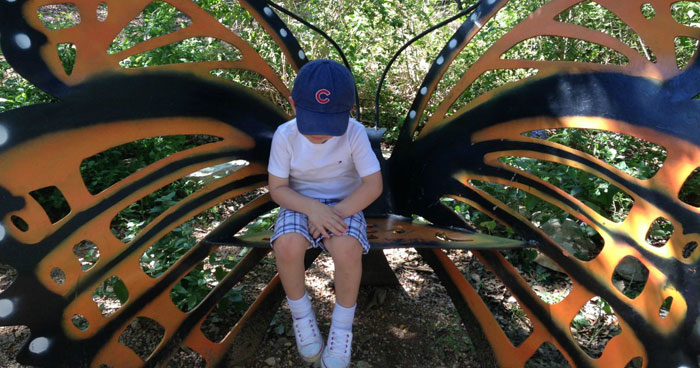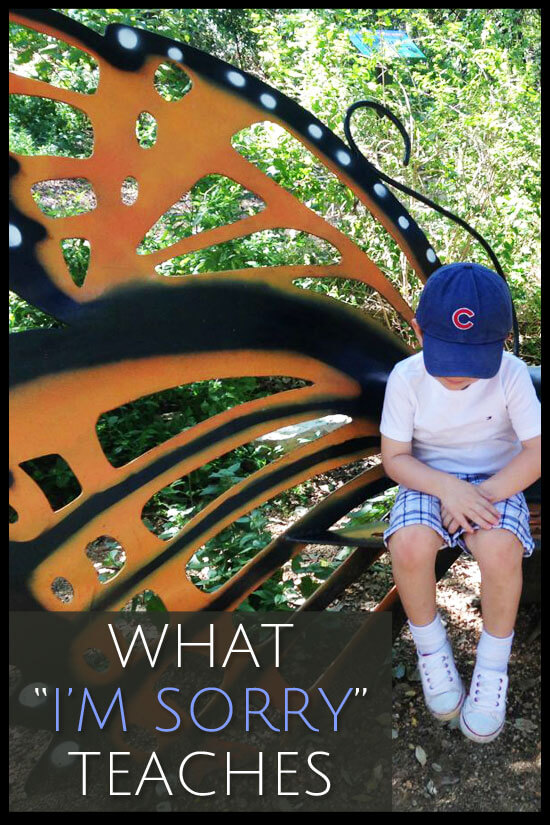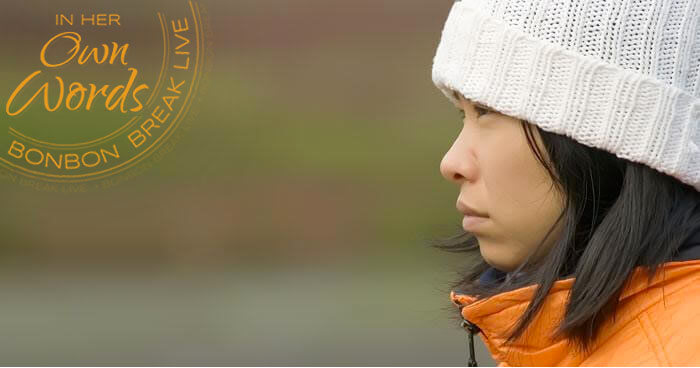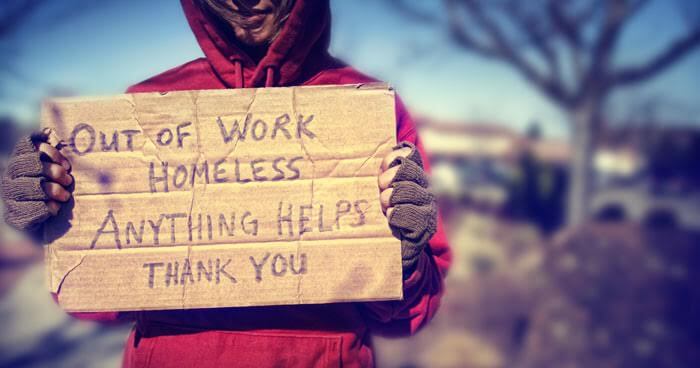What “I’m Sorry” Teaches


I heard a quiet “uh-oh” from the back seat.
“What happened?” I asked, peering in the rearview mirror in the parking lot of Target as I got ready to back out.
“I spilled the watermelon,” my five-year-old son said, worry in his voice.
Whipping around in my seat, I found an explosion of sticky juice, black seeds, and watermelon pulp all over the backseat of my freshly-cleaned car. It took less than a second for annoyance to kick in, and I subjected him to a barrage of “What were you thinking?” and “Why did you do that?” questions. Frustrated and fighting my ongoing battle with anxiety, I yelled.
When I noticed the tears rolling down his face, I hated myself. I closed my mouth and unlatched him from his booster seat, crying into his hair as I hugged him.
“I’m so sorry, honey,” I said. “I’m doing a bad job of being a mom today.”
He pulled away gently and told me to take a deep breath. Reaching over me, he took a water bottle from the cup holder and placed it in my hands.
“Take a drink of water, mama,” he said, kissing me on the nose. “It will make you feel better.”
My husband has been my best teacher in the art of the apology. We both have strong personalities, and we have been known to disagree. He knows that I met him after an abusive, unhealthy relationship, and he is extra careful with me. Even so, we have raised our voices at each other, slammed doors, and pushed each other’s buttons. Together, we have learned to apologize even when we still disagree, and we offer each other grace and understanding. Our son sees that practice in action, and he is also learning that while it’s best to keep our anger and frustration under control, an apology is a learning opportunity.
And why shouldn’t we apologize to him, too, when the situation arises? We are human parents, not of the Stepford variety. We’re still learning this gig called parenting, and we’re going to make mistakes. By showing him the beauty of a sincere apology, he will understand that being perfect is not required. Being compassionate and understanding others’ feelings is.
If I make a mistake, saying “I’m sorry” to my son doesn’t mean that he will lose respect for me. In fact, I hope that it generates more respect by helping him see that we are here for and with each other. We are teaching from the school of compassion; he will see that knowing when to offer an apology – and when to accept one– are cornerstones of kindness.
Admitting that I am wrong is not a weakness. It’s one of my strengths, and I want my son to know that making a mistake is not the end of the story. Even the best of us will make a mistake, and the better he learns how to get back up from a fall, the better and more whole he will be as an adult. A sincere apology forces us to take responsibility for our actions.
Children learn by example. If I show my son that I can take responsibility for my behavior and apologize and try to learn from it, then he will too. I’ve seen the proof.
* * *
After the blowup in the Target parking lot, I looked at my son through still-wet eyelashes, and he gazed back at me with love.
“Will you forgive me?” I asked him. I wouldn’t have blamed him if he hadn’t, but building an environment of trust and forgiveness and love is something we work on together.
“Of course, mama,” he said. “I already forgot about it.”
Just like that, my son proved that I’m not a terrible mother. Just an average mom having a less-than-stellar day. I’m not sorry that I’m still learning.
MORE INSPIRATION:
- Why I Stopped Saying No to Screen Time
- Why Self-Improvement Ideas Never Work
- Mama, I Just Want To Be A Person
- Shut Your Eyes and Listen to Peter
Read more from the INSPIRE posts
PIN IT FOR LATER

This post was written by Kristin Shaw exclusively for BonBon Break Media, LLC.
Would you like to sponsor a theme? Click here.










